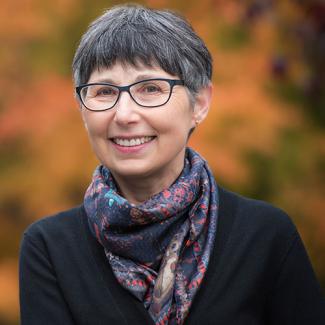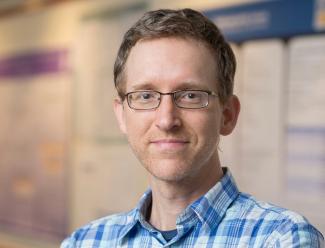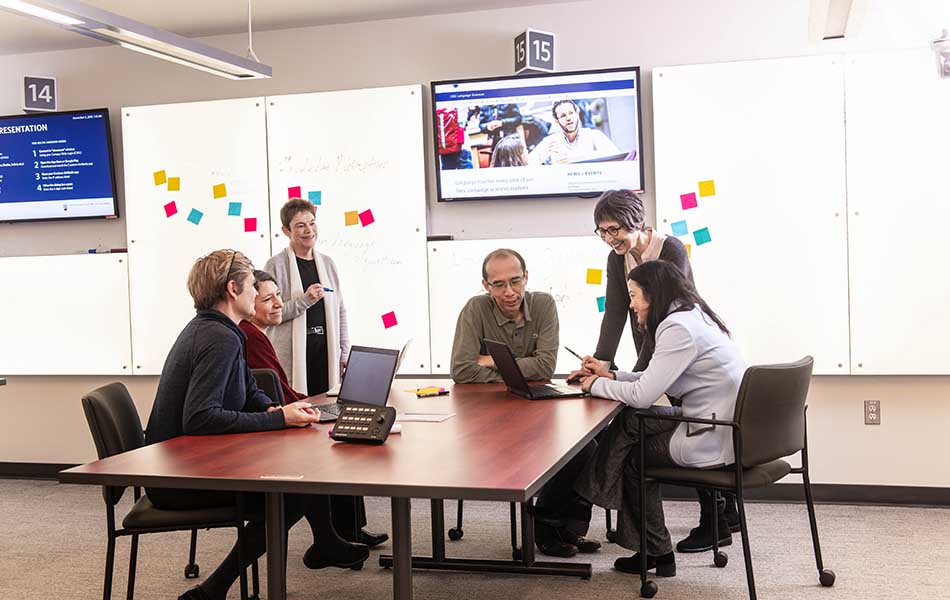Language is a vital system.
It affects everything around and within us, from public and personal health, to economic wealth, to cultural vitality. By bringing together language researchers from diverse disciplines, UBC Language Sciences is helping to tackle some of the most important, and pressing, questions of our time.
Co-directors Drs. Janet Werker and Bryan Gick, professors of psychology and linguistics, discuss why we need interdisciplinary language research and what the future holds as a newly approved Global Research Excellence Institute (GREx), one of only three at the University of British Columbia.
Why do we need interdisciplinary language research?

JW: The languages we use, be they spoken, signed or written, constitute one of the deepest parts of our personal identity, linking us to each other, our cultures, and history. Hence, there are enormous costs to the individual and to society when language breaks down, through illness, injury, or cultural appropriation, or when it is hijacked and twisted to misinform and manipulate. Thus, while it is language that allows us to express and work toward our highest ideals and toward social justice, it is also language that can most effectively subvert those goals.
BG: This year has raised huge questions for society: how to correct miscommunication about the pandemic, and about systemic racism, how to support Indigenous communities in language revitalization efforts after generations of brutal colonial suppression, how to be mindful of ethical concerns in natural language processing and data science, how to ensure children learn critical literacy skills in an increasingly online environment, and more. Interdisciplinary collaboration is the only way to answer and address these problems – within our silos, we can’t touch these questions.
The reality is the world doesn’t organize its problems around scholarly disciplines, so we have to do that work.
How has Language Sciences evolved since its founding in 2015?

JW: Our amazing founding donor and literary expert, Marietta Hurst, was excited to create a course that taught not just university students, but the general public, about the power of language. Together, we decided to establish the Living Language: Science and Society course, cross-listed in six faculties, as well as a research and teaching organization. Dean Gage Averill showed immediate enthusiasm and brought in the Office of the Vice-President Research + Innovation and the Provost, and our journey towards becoming a GREx began.
Successive Grants for Catalyzing Research Clusters have transformed Language Sciences. This funding allowed us to bring language researchers from across the university together who in many cases had never even met each other before, to share ideas and expertise. When we did, magic started happening, including innovative, interdisciplinary research projects that hadn’t been conceived of previously.
We now have more than 200 faculty and student members from 12 different faculties at both UBC campuses.
Our members are our strength – they bring new ways of seeing things, and new ideas and approaches.
BG: As a department head, I’ve seen almost every member of the department now working in collaborative teams with people outside the unit, addressing bigger, broader questions than five years ago. We’ve been changed not just by Language Sciences but by a sense of community and collaboration across hundreds of people at UBC.
Language Sciences has just been confirmed as a Global Research Excellence Institute. What does the future hold for language sciences research?
JW: We have identified five grand challenges for the near future: deepening our understanding of the biological systems that drive human language through new computer models; mapping language acquisition and decline in humans and communities; enhancing literacy and language education in an increasingly digital and multicultural world; addressing the need for effective tools to support the community-led maintenance, revitalization and reclamation of language and culture as a human right; and reimagining public discourse including in an online environment.
We’re committed to promoting equity, diversity and inclusion in our research, our events, our governance, and our structure. And we plan to work closely with even more community, industry, and government partners to create and share useful knowledge, tools, and initiatives.
BG: If we continue on this trajectory, we have the potential to make a difference to really important issues that are much bigger than any one of us could handle alone.
I see Language Sciences becoming a group of experts who are expert at working together, at a high level and on a large scale. That’s a powerful tool for doing good and making a difference in the world.
